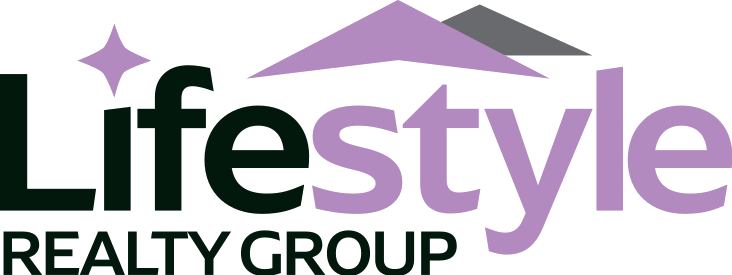Picture this, a community that always looks pretty, with all the perfect homes, amenities you don’t have to maintain, and so many more perks! If this sounds ideal, chances are you’re entertaining the idea of living in a Homeowners Association (HOA). However, it’s essential to understand all the pros and cons of joining a homeowner’s association before signing on the dotted line.
For a complete understanding of the pros and cons of a typical homeowner association, be sure to enlist the assistance of a Realtor®. They’ll help you find the community that fits your lifestyle and tastes. Your Realtor® can ascertain whether there is an HOA to deal with and will help secure a copy of the rules for your inspection before you get close to a purchase agreement. Your Realtor® may also be well acquainted with the community and may have had experience with that particular HOA you are inquiring about.
Let’s start with the pros:
1. The rules are the same for everyone and everyone receives a copy.
A typical HOA has a set of bylaws and covenants that everyone must follow. No favorites, no special favors are permitted. The benefits are that all information is readily available in black and white, so the neighborhood stays in pristine condition.
2. Property values are maintained by the development’s good looks.
Those who live in an HOA are protected from their neighbors painting their house lime green or purple or doing several ugly things that can ruin neighborhood resale value. In most HOA agreements, private residences’ landscape maintenance is included in common grounds’ maintenance. Also, it is often in the rules that garage doors need to be closed to ensure that they aren’t an eyesore and that everything is neatly manicured.
3. Shared community amenities: pool, gym, landscaping, and no maintenance on your part.
If you are part of an HOA, everyone in your community shares the cost of amenities, typically at the community center, pool, and gym or elsewhere within the community. This can make life much easier, as you don’t need to worry about purchasing those items separately.
4. Security gate or guard.
Some communities might have a security guard or gate as part of their amenities, and many people feel this is worth the small fee they pay to have this added security.
5. Problems with neighbors, or rule breakers? HOA handles it.
I can tell you that nobody likes to have problems with their neighbors or to have to report rule breakers. The good news for HOA dwellers is that they usually deal with that issue to keep their community neat and uniform and it’s not neighbor against neighbor.
Now onto the cons:
1. Your fees may increase.
It’s true; your HOA’s fees do not always remain fixed. If your community chooses to improve, even if you disagree, prices may go up. Yes, it probably goes to vote, and the majority wins. You will still pay the increase even if you voted against the improvement. The additional cost may push you over your monthly budget, so always watch for that.
2. Assessments: road maintenance, Gate upkeep, clubhouse, pool maintenance, etc.
These include road, gate upkeep, clubhouse, and pool maintenance. The fees can be one-time or spread over months or years in equal payments. Some HOAs will increase your monthly dues indefinitely. Selling your home becomes more complicated when a new buyer does not want to pay such high fees, making it harder to sell.
3. You have to follow the HOA’s rules.
Even if you own the house, the rules are the rules. If it says you can’t paint your house certain colors, or you must seek authorization from the architectural review board to make any exterior changes to your house.
4. There could be pet/vehicle restrictions.
There are some restrictions on pets and vehicles. There are sometimes weight restrictions on pets or the number of pets allowed. There may be vehicle restrictions such as no trucks or motorcycles; you must also follow the rules. Rules breakers will be held responsible.
5. You’ll get fined if you break the rules.
You should be aware that rules breakers can be fined if they seem too restrictive. It is also possible that a lien will be placed on your property if you choose not to pay dues because you do not agree with the HOA’s recent decision, or a civil lawsuit will follow if you opt not to pay your dues.
BONUS TIP 6. Check leasing restrictions!
This could be a deal breaker for many home buyers.
Here’s my $0.02 on living in an HOA
If you are buying in an HOA community, make sure you read the rules and check the finances to ensure there is a reserve fund. Check past meeting minutes to see what’s been discussed, for example if there will be an assessment. Have they discussed renovating the clubhouse? The pool? If the budget can’t cover it, a special assessment can be required.
In some HOAs, you must attend an interview before closing. Make sure you use a list of questions before closing. Make sure you include the monthly dues in your overall purchase budget to account for future increases. When you apply for financing, the loan officer will take this monthly amount into account. You could go over your bank’s lending limit with an HOA fee.
Finally, don’t be intimidated by these HOA cautions. Most of them are reasonable and well-managed, but be aware that some can be really problematic. If you see any red flags, ask your Realtor for advice and speak up immediately because once you close on your new home, you’ll have to follow the community’s rules. In some cases, it is completely fine and will help you maintain a high property value.
Just remember surprises are for birthdays not when buying real estate.




